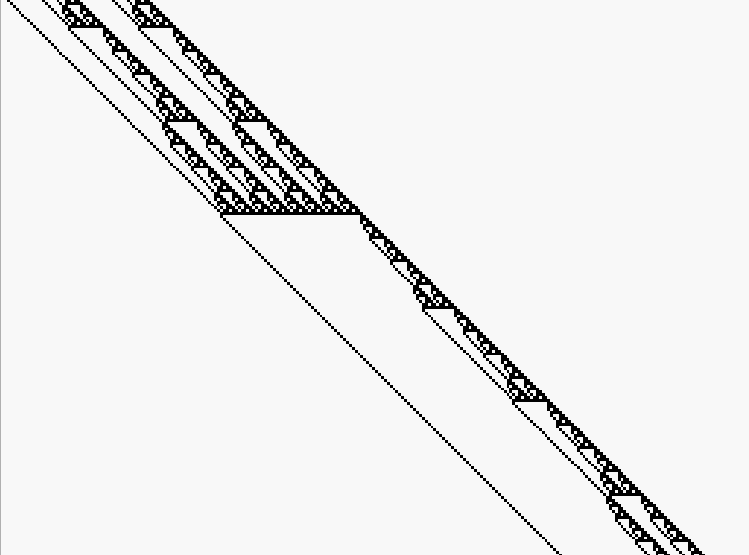Serendip is an independent site partnering with faculty at multiple colleges and universities around the world. Happy exploring!
Reply to comment
Deterministic and Non-deterministic Emergence
The world as we perceive it is neither fully disorganized (Figure 1), beyond our ability to identify any overall pattern in it, nor fully organized, describable by us in terms of some single simple pattern (Figure 2). Instead, we are faced with, and find ourselves trying to make sense of, a world that most typically shows mixes of pattern and disorganization at different scales (Figures 3, 4, 5).
In this exhibit, we use simple computer models to describe, illustrate, and compare three general approaches to making sense of the world (see also Making Sense of Understanding). One approach presumes that primal spatial patterns are the explanation for all organization, and that these patterns need to be uncovered by removing obscuring disorganization. A second approach, which we will call "deterministic emergence", treats both pattern and disorganization as the outcome of historical processes that follow simple and well-defined deterministic rules, and seeks to determine the starting conditions and rules which yield the current observations. A third approach, which we call "non-deterministic emergence", similarly adopts an historical perspective but identifies disorganization as largely the result of random (non-deterministic) processes that are a starting point as well as a continuing contributer to the historical process. From this third perspective, the task is to understand how random processes can yield varying degrees of organization.
The primal pattern and deterministic emergence approaches are more or less generally familiar to most people, the third is perhaps less so. Our objective is not to argue that any of these three inquiry programs is the "best" one, but rather to show how they, particularly the third, relate to each other by describing virtues and shortcomings of each.
| << back | next >> |
Posted by Paul Grobstein and Laura Cyckowski 11 Dec 2008.







